Just In
- 9 hrs ago

- 9 hrs ago

- 12 hrs ago

- 13 hrs ago

Don't Miss
- News
 MEA Dismisses US Human Rights Report On Manipur As 'Biased And Misinformed'
MEA Dismisses US Human Rights Report On Manipur As 'Biased And Misinformed' - Movies
 Truth Behind Shruti Haasan & Santanu Hazarika's Break Up; Duo Living Separately After Unfollowing Each Other?
Truth Behind Shruti Haasan & Santanu Hazarika's Break Up; Duo Living Separately After Unfollowing Each Other? - Finance
 1:5 & 1:2 Split, Rs 6/Sh Dividend: Fertilizer Stock Coming Up With 600% Payout; Record, Payment Dates Fixed
1:5 & 1:2 Split, Rs 6/Sh Dividend: Fertilizer Stock Coming Up With 600% Payout; Record, Payment Dates Fixed - Sports
 SRH vs RCB: 'Statpadder' Virat Kohli faces Fans Wrath after 118.3 Strike Rate
SRH vs RCB: 'Statpadder' Virat Kohli faces Fans Wrath after 118.3 Strike Rate - Automobiles
 Royal Enfield Unveils Revolutionary Rentals & Tours Service: Check Out All Details Here
Royal Enfield Unveils Revolutionary Rentals & Tours Service: Check Out All Details Here - Technology
 Elon Musk’s X Is Launching a TV App Similar to YouTube for Watching Videos
Elon Musk’s X Is Launching a TV App Similar to YouTube for Watching Videos - Education
 AICTE introduces career portal for 3 million students, offering fully-sponsored trip to Silicon Valley
AICTE introduces career portal for 3 million students, offering fully-sponsored trip to Silicon Valley - Travel
 Escape to Kalimpong, Gangtok, and Darjeeling with IRCTC's Tour Package; Check Itinerary
Escape to Kalimpong, Gangtok, and Darjeeling with IRCTC's Tour Package; Check Itinerary
What Are Blood Thinners? Read About 8 Natural Blood Thinning Foods
When it comes to the matter of heart and at the cost of our life, blood thinners or blood thinning foods and medications play a very important role. If you are suffering from heart problems and complications, it is said that you should start consuming foods that have properties of a natural blood thinner.

What Are Blood Thinners?
Blood thinners are medications taken orally or intravenously to prevent a blood clot [1]. Blood clots normally are not harmful and are good for the body but in some cases, blood clots can stop the flow of blood to the heart, lungs, or brain, resulting in a stroke or heart attack or ischemic shock[2].
Clotting of your blood is your body's way of protecting you from bleeding, which is good in most cases and help prevent loss of blood [3]. Blood thinners thin the blood to keep blood cells from sticking together in the veins and arteries and prevent blood clots by increasing the amount of time it takes for blood clots to form [4].
Individuals with certain conditions such as an irregular heart rhythm or a congenital heart defect require blood-thinning medications to reduce their risk of heart attack or stroke [5]. That is, blood thinners are recommended for those who have blood clots in the veins and arteries.
Blood thinners lower your risk for heart attack and stroke by limiting the onset of blood clots. Apart from the medications, there are certain foods that have blood-thinning properties, which can help reduce the risk of clotting [6].
Note: Do not use these natural blood thinners instead of or with your prescription blood-thinning medication without first talking to your doctor.
Health Benefits Of Donating Blood
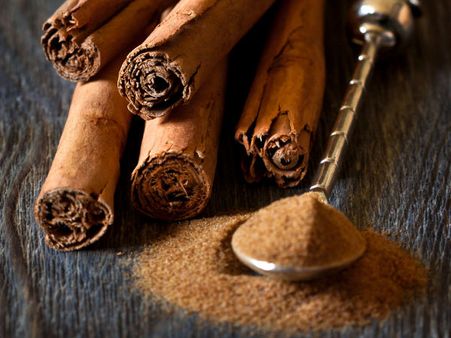
1. Cinnamon
Cinnamon contains coumarin, a compound that works as an excellent anticoagulant [7]. Cinnamon, when consumed in small quantities, can help lower the blood pressure and relieve inflammation. Consuming this spice can help reduce inflammation generally caused by arthritis and other inflammatory conditions.
However, avoid using cinnamon in large quantities for a prolonged period of time because it can cause liver damage [8].

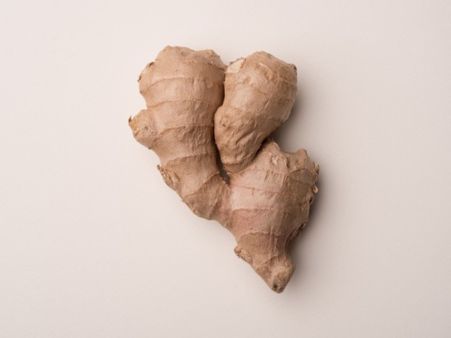
2. Ginger
Ginger is a great blood thinner as it contains salicylate, a natural chemical found in many plants and can help prevent blood from clotting [9]. When it comes to thinning of blood, ginger helps to reduce inflammation in the body and relaxes the nerves as well, and more studies are required to check the effectiveness of ginger in comparison to prescription medication [10].


3. Cayenne Pepper
Cayenne pepper has an excellent blood-thinning effect that helps to prevent blood clotting in the arteries and veins. Because of the high amount of salicylates in these peppers, it helps boost the blood circulation in the body and also lowers the blood pressure [11][12].
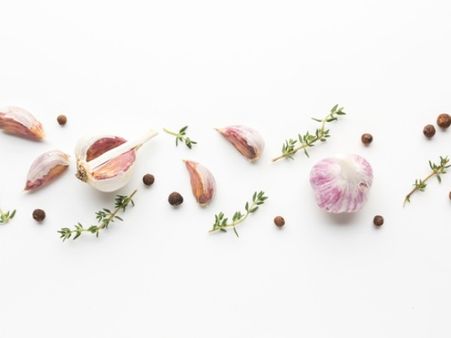
4. Garlic
Garlic helps to kill free radicals in the body and thus prevents the damage to the cell. It helps to improve the platelet count in the body and reduces blood pressure [13]. Apart from working as an excellent blood thinner, garlic is also known to improve blood circulation in the body.
Garlic has been proven to show antithrombotic activity, that is, an antithrombotic agent can help reduce blood clot formation [14].
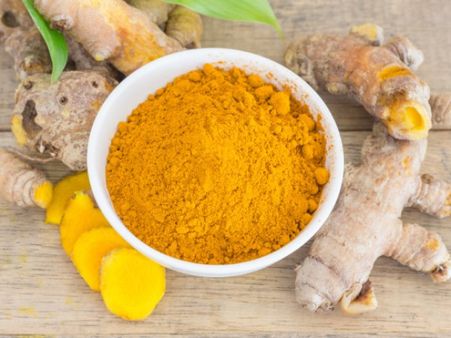
5. Turmeric
Curcumin, one of the main ingredients in turmeric, acts as an anticoagulant [15]. It helps remove cholesterol and plaque from blood to make it thin and thereby prevent blood clotting [16].
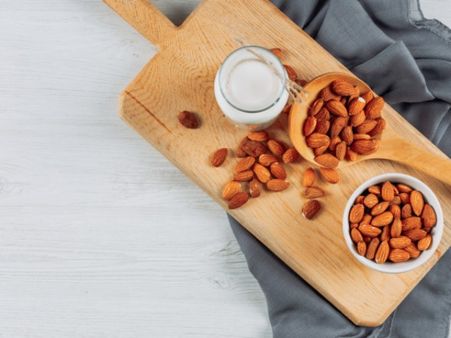
6. Vitamin E
Vitamin
E
can
help
blood
clotting
in
different
ways
and
it
depends
on
the
amount
of
vitamin
E
consumed
[17].
Although
it
is
unclear
how
much
amount
of
the
vitamin
can
help
thin
the
blood,
it
is
likely
that
more
than
15
mg
of
natural
alpha-tocopherol
(Vit
E)
or
22.4
International
Units
(IU)
per
day
is
required
[18].
It
may
be
safer
to
get
vitamin
E
from
foods
rather
than
supplements.
Foods
rich
in
vitamin
E
are
almonds,
sunflower
oil,
whole
grains
etc.

7. Grape Seed Extract
Some studies have pointed out that grape seed extract may have potential benefits for several heart and blood conditions [19]. The seed extract contains antioxidants that may protect the blood vessels and prevent high blood pressure, and act as a blood thinner [20].
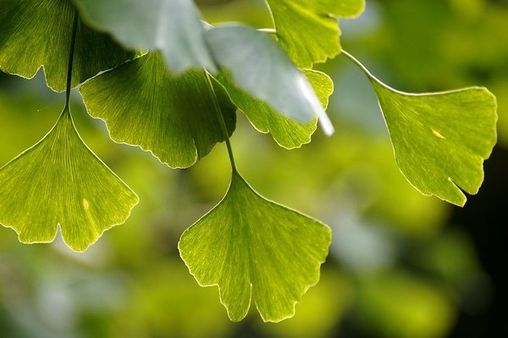
8. Ginkgo Biloba
Ginkgo biloba seed and dried leaves have been used in traditional Chinese medicine for more than 1,000 years. The unique combination of antioxidants and phenolic compounds in the plant extract are increasingly inclined towards improving blood circulation [21].

One study pointed out that ginkgo biloba extract has similar effects to streptokinase, a drug used to treat blood clots [22].
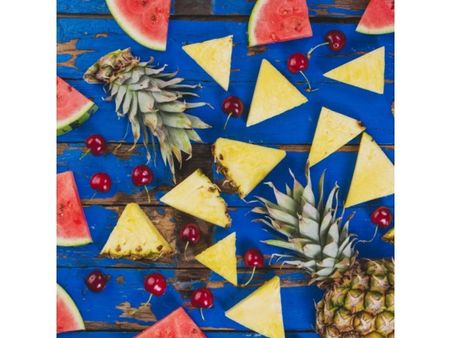
Other Blood Thinning Foods
Certain atural substances may reduce blood clotting to some degree, but natural remedies are unlikely to be as effective as blood-thinning drugs [23]. Discuss with your doctor before considering any of the natural blood thinners.
Here are a few more natural blood thinners, that does not have scientific proof as to the aforementioned ones.
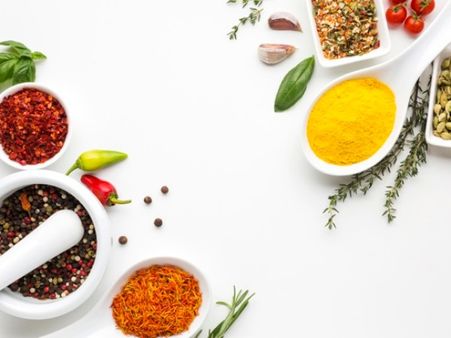
On A Final Note…
While there are a number of natural blood thinners available, do not start using them without first talking to your doctor. These natural blood thinners can interfere with your prescribed medication and can increase your chance of bleeding or other side effects. Also, these natural remedies can decrease the effectiveness of the prescribed medication, thereby increasing the chance of clot formation.

-
 healthDry Ice Served Mistakenly As Mouth Freshener At Gurgaon Cafe, Know Effects Of Dry Ice If Ingested
healthDry Ice Served Mistakenly As Mouth Freshener At Gurgaon Cafe, Know Effects Of Dry Ice If Ingested -
 insyncWhy Did Mongol Warriors Drink Blood? How Did It Play Crucial Role In Military Expeditions?
insyncWhy Did Mongol Warriors Drink Blood? How Did It Play Crucial Role In Military Expeditions? -
 wellnessWorld Diabetes Day 2023: Avoid These Common Mistakes When Testing Blood Sugar Levels
wellnessWorld Diabetes Day 2023: Avoid These Common Mistakes When Testing Blood Sugar Levels -
 pregnancy parenting14 Children Infected With HIV, Hepatitis After Blood Transfusion In UP Hospital: How Did It Happen?
pregnancy parenting14 Children Infected With HIV, Hepatitis After Blood Transfusion In UP Hospital: How Did It Happen? -
 wellnessDid You Know Your Own Blood Can Be Used For Pain Relief?
wellnessDid You Know Your Own Blood Can Be Used For Pain Relief? -
 healthWorld Blood Donor Day 2023: People Who Shouldn't Donate Blood
healthWorld Blood Donor Day 2023: People Who Shouldn't Donate Blood -
 healthWorld Thalassemia Day 2023: Expert On Alpha Thalassemia; What Lifestyle Changes Should One Adopt?
healthWorld Thalassemia Day 2023: Expert On Alpha Thalassemia; What Lifestyle Changes Should One Adopt? -
 wellnessWHO Urges Eligible People To Make Regular, Voluntary, Unpaid Blood Donations
wellnessWHO Urges Eligible People To Make Regular, Voluntary, Unpaid Blood Donations -
 disorders cureCOVID-19 And Blood Thinners: How Do They Help Increase Survival Rates In Critical COVID-19 Patients?
disorders cureCOVID-19 And Blood Thinners: How Do They Help Increase Survival Rates In Critical COVID-19 Patients? -
 wellnessAre There Home Remedies For Blood In Stool?
wellnessAre There Home Remedies For Blood In Stool? -
 wellnessDo You Donate Blood? Here Are The Benefits And Risks Of Blood Donation
wellnessDo You Donate Blood? Here Are The Benefits And Risks Of Blood Donation -
 wellnessCOVID-19 Severity In Patients With Haematological (Blood) Disease - Know What The Study Says
wellnessCOVID-19 Severity In Patients With Haematological (Blood) Disease - Know What The Study Says


 Click it and Unblock the Notifications
Click it and Unblock the Notifications




